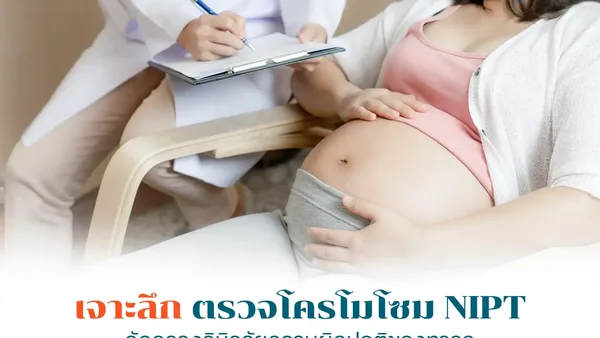Orchitis is a condition that can occur like in other parts of the body. It can be found in men of all ages and is most common in teenagers. The symptoms result from an infection after sexual intercourse. Additionally, orchitis can cause the testicles to not function properly and may lead to testicular atrophy.
Orchitis
Orchitis is an infection caused by viruses and bacteria, or it may occur together with an infection of the vas deferens. Orchitis can affect both testicles simultaneously or just one side. These symptoms can cause serious harm if not properly treated by a medical specialist, such as leading to infertility and severe illness.
Symptoms of Orchitis
Orchitis occurs due to abnormalities in the testicles, resulting in the following symptoms:
- Swelling and redness of the testicles
- Testicles become swollen and hard
- Pain or discomfort in the groin area
- Pain during sexual intercourse
- Fatigue
- A heavy feeling in the testicles
- Pain or burning sensation during urination
- Semen with blood mixed in
Causes of Orchitis
Orchitis is caused by infections from viruses and bacteria, or it may result from infections involving the vas deferens, leading to inflammation in the testicles. It can also occur due to other causes such as:
- Low immunity
- HIV infection
HIV is a type of virus that weakens the immune system, causing complications. - Bacterial infections
Often from sexually transmitted diseases, commonly found in adolescent males, such as gonorrhea and chlamydia, usually transmitted through unprotected sex. - Other diseases
Orchitis often occurs together with epididymitis and urinary tract infections. - Viral infections
The main cause is infection by the mumps virus, which can also lead to orchitis. - Non-infectious orchitis
Can occur from adverse reactions to certain medications or due to vasculitis (inflammation of blood vessels).
Risk Groups for Orchitis
Orchitis can occur suddenly due to health problems or risky sexual behaviors. If left untreated, it can cause serious complications.
People at risk of developing orchitis include:
- Those who frequently change sexual partners
- Those who have unprotected sex
- Those with urinary tract problems
- Those with sexually transmitted infections
- Those who have never received the mumps virus vaccination
Orchitis Symptoms That Require Medical Attention
In cases of orchitis, the testicles may become hard, swollen, and red. The condition can affect one or both sides, often accompanied by a dull ache in the testicles and groin pain. If these symptoms persist for more than two days without improvement, it is important to see a doctor for proper diagnosis and treatment.
- High fever
- Nausea or vomiting
- Increasing testicular pain or heaviness
- Blood in the urine
- Pain and tenderness when pressing on the groin or testicles
Diagnosis of Orchitis
1. Initial Medical History
If signs of orchitis are suspected, it is important to consult a doctor immediately. The physician will begin by reviewing the patient’s medical history:
- Patient’s age
- Initial symptoms of orchitis
- Sexual activity history
- History of protection during sexual intercourse
- History of urinary tract problems
- History related to infectious diseases
2. Urine Test
- A urine sample will be collected
- The sample will be analyzed to identify the cause of the infection
3. Ultrasound Examination
- To check blood flow in the testicles
- To detect other abnormalities
4. Blood Test
- To test for HIV infection
- Performed if the doctor suspects an infection or if the patient is at risk
5. Sexually Transmitted Disease (STD) Screening
- Conducted if there is discharge from the urethra
- To test for gonorrhea and chlamydia
Swollen Testicles: Treatment Methods
Patients with epididymitis or those with mild symptoms can be treated and fully recover without affecting fertility. The treatment approach for epididymitis depends on the individual and the underlying cause, as diagnosed by a medical specialist.
If the epididymitis is caused by a bacterial infection, the doctor will prescribe anti-inflammatory drugs and antibiotics. The patient must complete the entire course of medication as prescribed, even if symptoms improve significantly, to ensure full recovery from the infection. Treatment duration may vary.
If the epididymitis is caused by a viral infection, the treatment will focus on relieving the patient’s pain using anti-inflammatory medication.
Cold compresses can help relieve symptoms. Each application should not exceed 20 minutes. Be cautious not to let ice come into direct contact with the skin. In the early stages, cold compresses should be applied several times a day to help reduce pain and swelling.
Adequate rest is essential. Avoid heavy lifting or strenuous activities while continuing the prescribed medication.
If symptoms become more severe, the doctor may consider administering antibiotics intravenously.
1. Symptom Relief
- Pain relievers
To relieve pain in the groin and testicle area. - Fever reducers
To reduce high fever. - NSAIDs
Non-steroidal anti-inflammatory drugs used to reduce inflammation.
2. Treatment of the Underlying Cause
- In the case of bacterial infection
The doctor will treat it with antibiotics and anti-inflammatory drugs. - In the case of viral infection
The treatment will focus on reducing inflammation using anti-inflammatory drugs, such as ibuprofen. - In other cases
If symptoms become more severe, the doctor may administer medication intravenously.
Possible Complications from Orchitis
Possible complications during orchitis include infertility due to inflammation of the epididymis, degeneration of testicular tissue, and the formation of ulcers on the skin of the scrotum. Patients can also develop orchitis from the mumps virus. Additionally, patients with orchitis may experience abnormalities in their sperm after the condition. If there is mild swelling without pain, it is recommended to consult a doctor immediately to reduce the risk of testicular cancer.
Guidelines for preventing orchitis
Methods to prevent orchitis include the following:
- Maintain personal hygiene and use condoms to prevent infection during sexual intercourse
- Avoid having multiple sexual partners
- Do not self-medicate without a doctor’s approval
- If at risk of infectious diseases, see a doctor immediately for treatment
- Get vaccinated against mumps
Frequently Asked Questions
Orchitis — What medicine should I take?
- Pain relievers
- Fever reducers
- NSAIDs (Non-Steroidal Anti-Inflammatory Drugs)
- Anti-inflammatory drugs
- Medication for nausea/vomiting
Orchitis — What should I avoid?
- Avoid alcoholic beverages, as they can cause loss of control leading to unsafe sexual behavior
- Do not take medications indiscriminately without doctor’s approval
Summary
Orchitis is an inflammation that can occur in the testicles, similar to other body organs, and can affect males of all ages. It is most common in teenagers due to lack of protection during sexual activity, increasing the risk of orchitis. The condition can be caused by viral or bacterial infections or infections spreading from the epididymis. Orchitis may affect one or both testicles. If left untreated, it may cause long-term complications such as infertility.
If you have any questions, you can contact us at Line@: @beyondivf





